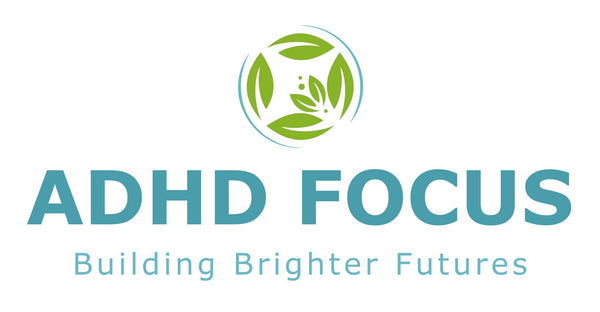
Are ADHD Children Neurodivergent?
Share
As a parent or teacher you’ve likely heard terms like neurodivergent or ADHD being used more often—especially in conversations around how children learn, behave, and thrive in the classroom and at home. But what does neurodivergent really mean? And how does it apply to children with ADHD?
In this blog, we’ll unpack what neurodivergence is, explore why children with ADHD fall under this umbrella, and highlight how natural remedies can play a powerful role in supporting these incredible, uniquely wired kids.
What does Neurodivergent mean?
Neurodivergent is a term used to describe people whose brains function differently from what is considered "typical." This isn’t a medical diagnosis—it’s a social term, meant to foster inclusivity and respect for cognitive diversity. The opposite is neurotypical, referring to those whose neurological development aligns with societal norms.
Being neurodivergent simply means the brain processes information, emotions, and stimuli in a way that’s different—but not wrong.
Is ADHD a form of neurodivergence?
Yes, children with ADHD are considered neurodivergent.
Attention-Deficit/Hyperactivity Disorder (ADHD) is a neurological condition that affects focus, impulse control, and emotional regulation. These children might:
- Struggle to sit still or concentrate for long periods
- Think quickly and creatively, but find it hard to stay organized
- Feel deeply, react strongly, or get overwhelmed easily
These differences reflect how their brains are wired, not a sign of being "naughty" or "difficult." Recognising them as neurodivergent helps shift our mindset—from trying to "fix" them to understanding and supporting them in ways that work with their brains, not against them.
Why this matters for parents and teachers
In many schools, especially in under-resourced environments, neurodivergent children may face additional challenges. Teachers may lack training in learning diversity, and children may not get early diagnoses. Many families hesitate to explore conventional medication due to concerns over side effects, cost, or stigma.
That’s why awareness and early support—including natural, holistic approaches—are so important.
Natural support for neurodivergent children with ADHD
At Feelgood Health, we’re passionate about providing safe, effective, natural remedies that help children thrive—without harsh chemicals or sedating side effects.
Here are a few of our top natural remedies for ADHD:
1. Focus & Calm™
A 100% herbal remedy designed to promote calm, reduce restlessness, support mental focus and promote brain health. Children who struggle with attention and concentration at school would benefit from this remedy, which can be used alone or together with the remedies below, according to need.
2. BrightSpark™
This homeopathic remedy suits children who display impulsiveness, emotional outbursts, and hyperactivity—helping them feel more balanced and regulating behaviour, without unwanted side effects.
3. MindSoothe Jr.™
This herbal remedy is perfect for children dealing with mood swings, dysregulation or emotional sensitivity, helping to soothe the nervous system gently and naturally.
These remedies are proudly formulated to the highest standards in natural medicine and are best used as part of a holistic approach to ADHD.
How to Support Neurodivergent Children
Remember that helping ADHD children is not just about medication and a holistic approach offers best results. Here are some practical, low-cost ways parents and teachers can empower neurodivergent children:
- Use routine and structure: Predictability helps ADHD kids feel safe.
- Break tasks into small steps: Avoid overwhelming them with big expectations.
- Celebrate strengths: Many ADHD children are highly creative, funny, and intuitive. It is good for their self esteem and personal growth to be involved in activities where they can shine! Think about drama, sports, art, choir - even computer games in moderation!
- Prioritise movement: Let them wiggle! Movement often improves focus. Introduce fidget toys and regular movement breaks, for example.
- Stable family environments make a big difference. A happy, healthy family with a healthy lifestyle can help to reduce stress and anxiety for everyone, including children with ADHD!
- Diet is important. Regular healthy meals and snacks and as little sugar as possible can make a difference and keep blood sugar levels stable, preventing spikes. Many neurodivergent children are picky eaters, so a good multi-vitamin is also recommended.
Most importantly, lead with empathy. These children aren’t broken—they just learn and grow differently!
Final Thoughts
Understanding that children with ADHD are neurodivergent is not just a label—it’s a call to action. It invites us to reimagine classrooms, rethink parenting, and build systems that uplift every kind of mind.
Together, we can create a world where neurodivergent children are not just accepted—but celebrated!
